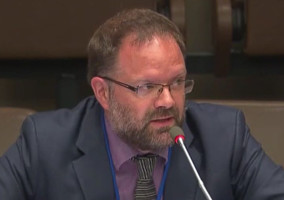If evidence were needed that charity defines us as a family of nations, then the new years’ honours list provides it. Among the 1,000-odd people recognised this year are leaders of several household name charities: the Scouts, Shelter, Citizens Advice, the Samaritans. That they have been honoured, and the reasons for which they are honoured, should make all involved in charity proud.
But more important than the sporting heroes, celebrities and big names of all kinds on the honours list are the people and organisations most of us have never heard of. Those who have dedicated months, years, lifetimes to the service of other people, often without, until now, much public recognition, and with no expectation of reward. In some cases, people are recognised for the positive difference they have made in a geographical place. Others are honoured because of the way in which they have furthered a cause, or sought to right a wrong. That they are honoured provides an important reminder that while charity takes a wonderful diversity of guises, it is brought together in one simple principle: charity is fundamentally about giving, about sacrificing something – our time, our money, our passion, our intellect – for the service of other people, or a greater good.
This may sound to many people like ‘motherhood and apple pie’ – what else should charity be about than giving to others? But it bears repetition in the world of professional charity. It is worth reminding ourselves that service – voluntary and discretionary – is what makes charity distinct, special to everyone and why people believe it is worthy of protection for generations to come. All of us involved in charity must be driven by the needs and expectations of those we serve, and behave in a way that honours and respects them.
Reconnecting with the public
Many in the sector agree that organised charity must reconnect with the public. A survey of charities conducted some years ago by PwC revealed that a third of charities felt restoring the public trust in charity was among the most pressing concerns facing the sector. And among those receiving the highest honours now is Dame Julia Unwin, who in 2018 concluded her inquiry into the future of civil society. She made a powerful call for those involved in organised civil society to remember who they are ultimately answerable to: “it’s time we all focus on accountability to the communities and people we exist to serve.”
For the sector to succeed all parts of the public must be served. That means showing respect for the expectations of everyone whose support charities rely on, as well as respect for those who rely on the support charities offer and they receive.
I am determined to ensure that together, the Charity Commission and the charities we regulate serve the public better by upholding and showing we share people’s common understanding of what charity means.
And we know we won’t achieve that aim unless we provide a world-class service to the many hundreds of thousands of people involved in charity who want to get it right. We rely on trustees more than anyone else, the vast majority of whom are volunteers, to be on the frontline of keeping charity special and protecting its good name. So a big focus for us in 2020 and over the next few years will be to improve online guidance for trustees: making it shorter, sharper, better targeted to different types of charities, notably smaller ones whose trustees should not need to trawl through thousands of words to get to what they want to know.
The year has started well for charity, and we must continue thus. I’m not complacent about the challenges ahead for the charity sector in order to become more connected to the public’s expectations of it. On behalf of the public who care so much about charity, we will continue to support and encourage the sector to rise to these challenges.
Baroness Stowell is chair of the Charity Commission
|
Related articles












